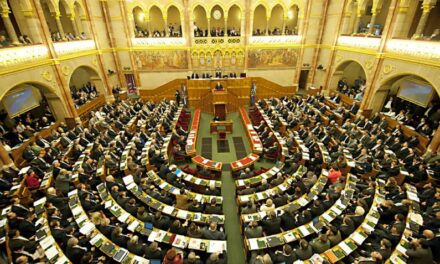Until now, Lőrinc Mészáros has only spoken to the Hungarian press as the mayor of Felcsút and as the head of the Puskás Academy. to Index not only about his wealth, but also about his businesses. Here are some excerpts from the interview:
"We operate a huge group of companies, with almost 30,000 employees in almost every segment of the economy, that is, we are the largest employer in the private sector. If someone examines the companies belonging to the Mészáros Group from these points of view, then I think it is right that we are in the forefront. Behind this is performance.
Rather, I see what is behind the attacks, and therefore I accept and understand that many people do not like my committed right-wing stance.
Since there is a right-wing government in Hungary today, it is understandable to me that the opposition attacks the government through the Mészáros Group and other economic actors linked to the right. By the way, as far as the lists are concerned, I would like to remind you of one of Prime Minister Viktor Orbán's previous comments, which he gave to a journalist's question: "some people pay to get on a list, and some pay to get off." I do not attach any particular importance to the mentioned lists. (…)
It is a left-liberal misconception that jobs are given to entrepreneurs. The vast majority of our jobs are obtained through open procedures, where the most favorable offer wins. 95 percent of the tenders are open and start with an announcement, in which anyone can participate. I find it gratifying that a company with a Hungarian ownership background can compete with multis with an international background. As for the facts, they are all publicly available data: we won less than 10 percent of public procurement procedures exclusively or in association with others, so anyone who claims that we take everything is not telling the truth.(...)
There are political forces in Hungary who are interested in asserting the interests of multinational capital. To understand this, we need to look back in time. During the regime change, the Hungarian construction industry companies were privatized by the old comrades of the time, but they could not become successful. Therefore, after that, the Horn government made use of foreign capital, large foreign entrepreneurs, who built a well-functioning infrastructure in Hungary, the basis of which was the good Hungarian human resources. They successfully operated their companies in Hungary and won every tender. This was typically during the time of the left-liberal government, since I remember that during the first Orbán government, there were attempts to mobilize Hungarian capital and to allow large Hungarian entrepreneurs to be present in the construction industry. However, this was interrupted by the change of government in 2002, a very sad period greeted us until 2010, when the Hungarian construction industry was almost completely crushed by the Medgyessy and Gyurcsány governments. They took up again the practice adopted by the Horn government and once again favored foreign-owned companies. (…)
Hunguest Hotels could only participate in the third round of tenders. In the first round, only guesthouses and smaller tourist facilities could apply, in the second, hotels with less than 100 rooms could apply, and only in the last, third round, those with more than 100 rooms could apply for the tender.
So Hunguest was at the end of the line, quite rightly, since the smaller ones should be helped first. At the same time, the largest hotel reconstruction in Hungary to date, involving 14 hotels of the hotel chain, became impossible to postpone. Its importance is shown by the fact that the total cost of the project is more than HUF 50 billion, one-third of which is state aid, and two-thirds of the costs were provided by the owner Opus Global from its own resources. And as the CEO of Hunguest has stated several times, the houses belonging to the hotel chain are in many cases the largest taxpayers of the given settlements, from which they run kindergartens and nurseries and finance public services. Thanks to the renovations, a higher quality service will be created, which is expected to generate more income for the local community as well. In addition, I would like to point out that the hotels that did not close due to the renovation ensured the livelihood of almost a thousand employees during all three waves of the coronavirus and during the shutdowns in an extremely critical period. (…)
It is incomprehensible to me how those who claim to be socially sensitive can attack Hungarian workplaces, because that is what it is actually about. When the opposition attacks Hunguest Hotels, Hungary's largest hotel chain, it boycotts Hungarian workers, their family members, and actually the country.
We already have a foreign presence in the hotel industry: in Austria and Montenegro. We are happy to expand in the construction industry, we want to be more strongly present in the neighboring countries, we have serious plans in Croatia, Slovakia and Romania. But we are not only thinking in the region: we are now buying two companies in Libya, power plant maintenance companies.













